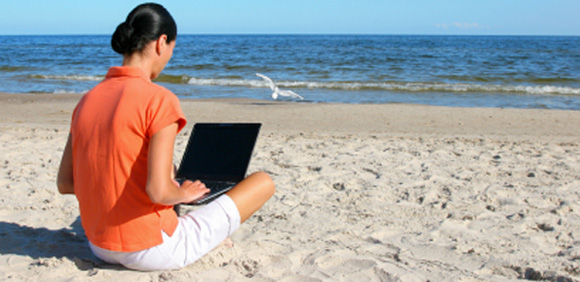How is a travelogue written? Today, thousands of blogs and websites are published about travel on the Internet. Most of them are destined to family and friends and have greater pretensions to function as a kind of travel diary. Others focus on delivering news, fun facts or information about places in blog format and some try to provide a certain personal stamp in the way of narrating.
Whatever the model, I think it is worth learning for travel writers from the experts. So in this post, I will try to summarize some of the points mentioned in two excellent manuals on travel writing, whether in a blog, web format and even for one who meditates about writing a book. Two excellent reference tools for those who want to start or maintain a website or a travel blog with a vocation of continuity and want to improve their style.
The first is the Lonely Planet Guide to Travel Writing by Don George, editor of Lonely Planet, and focuses more on what is commonly referred to as travel writing jobs, that is, how to prepare, organize, manage, style and give life to a travelogue.
The second, more general, is Travel Writing 2.0 by Tim Leffel, founder also of the web perceptive Travel, which, although also talks about style, focuses mainly on the different possibilities of making money with travel writing by an honest and realistic approach to this world. His conclusion is clear: live travel writing requires a lot of sacrifices and even if you get up, you will never be a millionaire. As stated acidly in one of his pages: today the only blogs that make money are “how to make money with a blog”. Do not do it for money … that is the message.
Extracted from these two texts is a list of 3 tips to garner online travel writing jobs:
-
A good story should be prepared before and during the journey itself. Guides, local newspapers, and magazines or travel literature serve as a source of information to better understand the culture, history, customs and what interests them or worry the locals during the visit. During the trip, one must observe and record, cultivate meetings, get carried away by curiosity. The art of taking notes is to pay attention.
-
Every accurate account of a thread, a central theme. That theme is the main objective and must discard everything that does not come to mind: does the reader need to know this? It is good to think of the story as blocks that support each other, that fit.
-
Every beginning of travel writers should induce a reader to continue reading. Whether through intrigue, it is offering clues that what comes next will be entertained, be introducing questions that will be answered later … Start with phrases like “Today, we got up at 7:30” not conducive to continue.

